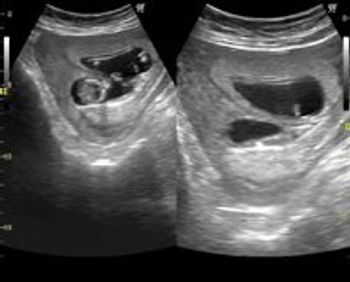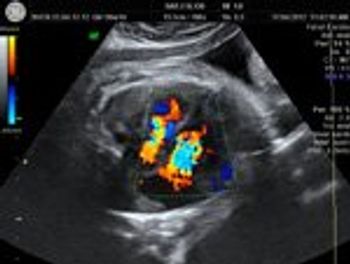
One of the most difficult things a doctor faces is the apology for mistakes. See why it's so important to get the apology right.

One of the most difficult things a doctor faces is the apology for mistakes. See why it's so important to get the apology right.

A look at new research on one of the leading causes for maternal mortality.

Dietary and lifestyle interventions in pregnancy can reduce maternal gestational weight gain and improve outcomes for both mother and baby, according to a new study. In Europe and the United States, 20% to 40% of women gain more than the recommended amount of weight during pregnancy.

Although antibiotic therapy is more effective than probiotics in treating recurrent urinary tract infections, antibiotic resistance increases rapidly after onset of drug therapy.

There is an ongoing debate as to whether or not pre-operative urodynamic testing offers any value in uncomplicated stress urinary incontinence patients who are undergoing surgery.

These are ultrasound images of an early pregnancy.

Population based risk scoring can effectively predict preterm birth risks earlier than cervical length screening according to research presented at the American Congress of Obstetricians and Gynecologists' Annual Clinical Meeting.

There is much debate about whether pre-operative urodynamic testing (or bladder function testing) is clinically useful in patients with pure stress urinary incontinence, with some professional organizations recommending for the use of routine urodynamics and some recommending against routine use of these tests.

Several recent studies have shown that the addition of secondary ultrasound markers to the combined first-trimester screening for aneuploidies, or chromosomal abnormalities such as trisomy 21 (Down syndrome) and trisomy 18 (Edwards syndrome), can slightly improve screening accuracy.

A study presented at the American Congress of Obstetricians and Gynecologists’ Annual Clinical Meeting indicates that as birth weight increases, progression in labor is slower in both successful trial of labor and patients who ultimately have cesarean deliveries.

A new enzyme-linked immunosorbent assay, which was developed by scientists at the National Institute of Allergy and Infectious Diseases, was used to distinguish specific types of Toxoplasma gondii parasite that children acquired in the womb from their acutely infected mothers.

A jury recently awarded 78.5 million in a birth injury case.

There are multiple anomalies in these ultrasound images of a second trimester pregnancy.

The findings of several recent studies involving breast cancer is lending further evidence to the idea that genetics and genomics will soon be the primary focus of diagnosing and treating cancer.

In the early years, medical practices only utilized Relative Value Units (RVUs) to understand the Medicare fee schedule. Now the role of RVU analysis has expanded. RVUs have become the standard measurement in analysis of reimbursement and payer contracts, physician compensation and productivity, and practice staffing and operating costs.

A geographic practice cost index (GPCI) accounts for geographic differences in the cost of practice around the country.

The decision to continue a pregnancy on the basis of diagnosed fetal conditions may depend on whether the physician counseling the parents is a maternal-fetal medicine or a fetal care pediatric specialist. More >>

Women with opioid dependence who become pregnant are at risk for adverse pregnancy outcomes and perinatal complications.

Postoperative use of a neoprene abdominal-pelvic binder significantly increases ambulatory events in the first 24 hours after surgery and may be of benefit particularly in a high-risk gynecological oncology surgical population, according to a study presented the American Congress of Obstetricians and Gynecologists’ Annual Clinical Meeting.

A recent article published in the BMJ compared elective induction with expectant management.

What is your diagnosis of this 36 week old fetus with cardiomegaly?

Women over the age of 25 may still need to be screened for Chlamydia trachomatis (CT) according to research released at the American Congress of Obstetricians and Gynecologists’ (ACOG) Annual Clinical Meeting.

A study that examined trends in timing of non-medically necessary elective delivery and NICU utilization indicates that the older the gestational age of the infant, the less the NICU is utilized.

No single technique is superior at preventing major vascular or visceral complications during laparoscopic entry, according to a Cochrane review, but certain techniques confer advantages.

Digital mammograms every other year in women aged 40 to 49 who have double the average risk for breast cancer have about the same risk?benefit ratio as biennial screening of average-risk women starting at age 50.

Although use of brachytherapy to treat invasive breast cancer after lumpectomy is increasing, whole-breast irradiation has proven superior in 2 important aspects.

Women who experience early menopause?before age 47?have increased risks for osteoporosis, fragility fractures, and death.

The benefits and risks of breast cancer screening have often been debated by the clinical and epidemiological realms, with key arguments centering around overdiagnosis.

The FDA issued a public health notification regarding use of surgical mesh for the repair of pelvic organ prolapsed and stress urinary incontinence. Surgical mesh has caused severe complications in some patients.